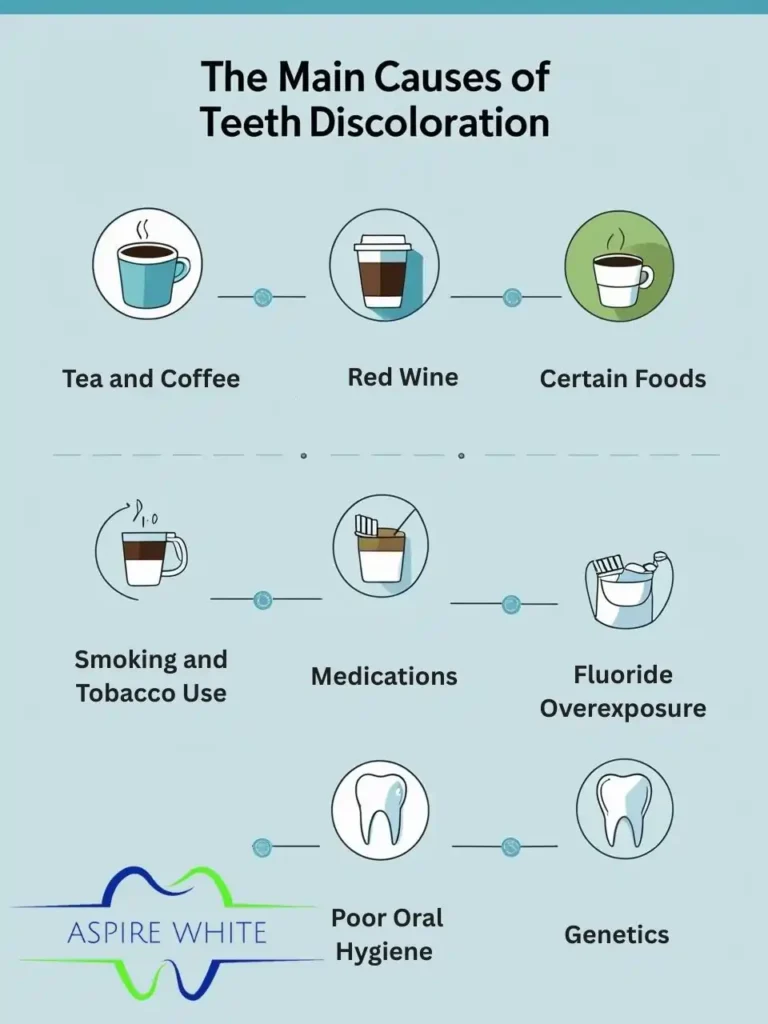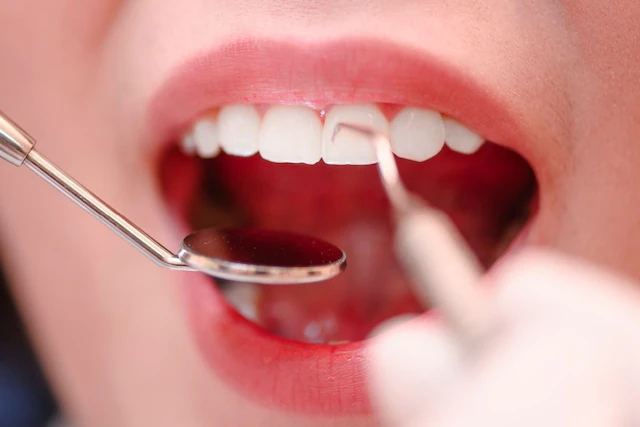A bright smile isn’t only about how often you brush or the toothpaste you choose — your daily diet plays a massive role in keeping your teeth white. At Aspire White Reading, we specialise in professional-grade at-home laser teeth whitening treatments, but we also know that what you eat can help maintain those results for much longer.
Foods like crunchy apples, carrots, and celery naturally scrub away surface stains thanks to their fibrous texture. Dairy products such as cheese, yoghurt, and milk are rich in calcium, which strengthens enamel and makes it more resistant to discolouration. See Here The Discolouration Dilemma: Unveiling the Impact of Diet on Teeth Stains
If you combine these smile-friendly foods with our advanced at-home whitening system, you’ll not only achieve a whiter smile — you’ll also keep it glowing for weeks after your treatment.
What Foods Do You Crave That Could Secretly Stain Your Smile Reading—And How Can Aspire White Help You Replace Them?
We all have our favourite go-to treats — coffee in the morning, red wine on a Friday night, or that comforting bowl of pasta in rich tomato sauce. Unfortunately, these delicious indulgences are some of the worst offenders for staining teeth.
At Aspire White Reading, we never tell clients to give up the things they love — instead, we help you make clever swaps. For example:
- Switch black tea for green or herbal tea to reduce yellowing.
- Enjoy berries with a cube of cheese to neutralise acid and protect enamel.
- Drink water after dark drinks to rinse away pigments before they set in.
And when stains do creep in? Our at-home laser whitening can lift years of discolouration in just one session, giving you back your brilliant smile without sacrificing the foods you enjoy.
Which Tasty Foods Can Naturally Scrub Away Stains While You Enjoy Your Meal?
Some foods work like nature’s toothbrush, cleaning your teeth as you chew. Raw carrots, cucumbers, and celery stimulate saliva production, which helps wash away bacteria and food particles.
Apples are another fantastic choice — their fibrous skin gently polishes tooth surfaces, giving you a mini clean mid-meal.
At Aspire White Reading, we encourage our clients to make these foods a regular part of their day. Not only do they keep your teeth looking fresh, but when combined with our safe, professional at-home laser whitening, they help prolong your results so your smile stays brilliant for longer. Check Out Is Whiter Teeth More Important Than Good Dental Health?
What Are the Best Everyday Foods That Act Like Natural Teeth-Whitening Agents?
Nature has given us some surprisingly powerful teeth-whitening allies.
- Strawberries contain malic acid, which can help dissolve surface stains.
- Pineapple has bromelain, an enzyme that helps break down plaque.
- Dairy products like cheese and yoghurt are rich in calcium and phosphorus, strengthening enamel and keeping your smile healthy.
While these foods are helpful, at Aspire White, we remind clients that they work best alongside professional care. Our at-home laser whitening treatment goes deeper than food can reach, tackling stubborn stains and giving you a bright, confident smile to maintain with your diet.

Given Your Daily Diet, Which Swap Could Brighten Your Smile Faster Reading—Broccoli or Strawberries?
Both broccoli and strawberries are great for your teeth, but they work differently. Broccoli acts as a protective barrier, helping shield enamel from acids that cause discolouration. Strawberries, with their natural malic acid, help to gently whiten teeth by breaking down surface stains.
At Aspire White, we say — why not have both? Enjoy broccoli as part of your main meal, followed by fresh strawberries for dessert. Pair this with our at-home laser whitening, and you’ll see faster, longer-lasting results, no matter which you prefer.
How Can You Build a Smiles-Boosting Plate With Foods That Clean and Protect?
Building a smile-friendly plate is simpler than it sounds:
- Start with crunchy vegetables like celery or carrots to naturally scrub away debris.
- Add a portion of cheese or yoghurt to strengthen enamel.
- Include fruits such as apples or strawberries to freshen breath and provide a gentle, brightening boost.
At Aspire White Reading, we suggest incorporating these foods into your daily meals to support the effects of our at-home laser whitening. Think of it as giving your teeth daily care so they can keep shining between treatments.
What Small Change in Your Snack Routine Could Help You Smile Brighter Tomorrow?
Small, consistent changes can make a big difference to your smile. Swap sugary snacks for crisp apples or crunchy carrots, and you’ll instantly reduce plaque build-up and staining. Even something as simple as drinking water after snacking can help rinse away stain-causing particles. See Here Shine Bright: The Truth About Laser Teeth Whitening
At Aspire White Reading, we combine these everyday habits with our professional-grade whitening to give you a healthier, brighter smile that’s easier to maintain.
If Your Teeth Could Talk, What Would They Say About Your Food Choices Reading?
If your teeth could speak, they might thank you for every crunchy apple or piece of cheese you eat — but they might also gently warn you about the coffee, cola, and red wine.
At Aspire White Reading, we believe a healthy, white smile is the result of consistent care. Our at-home laser whitening system gives your teeth a fresh start, removing years of stains.
From there, your daily food choices help keep that whiteness intact, so your teeth can keep “smiling” their thanks.





